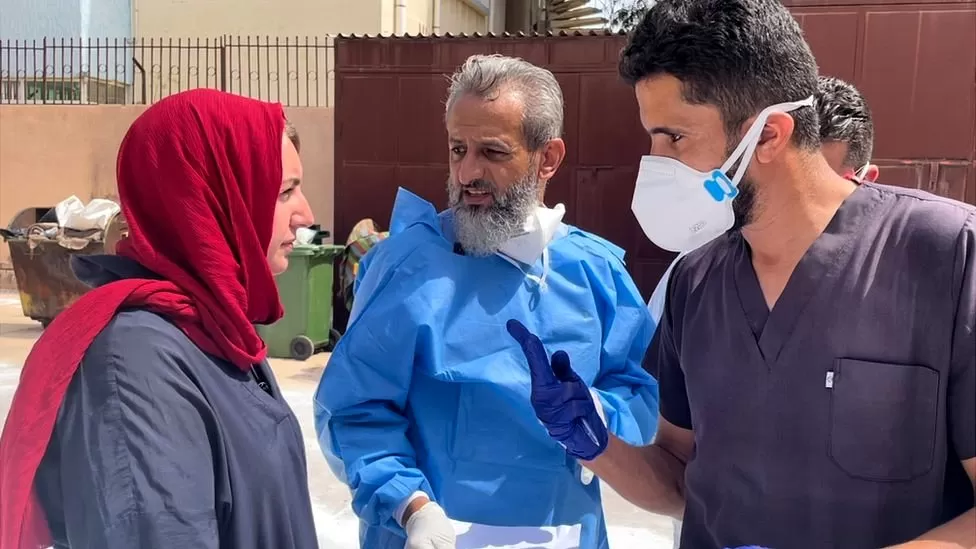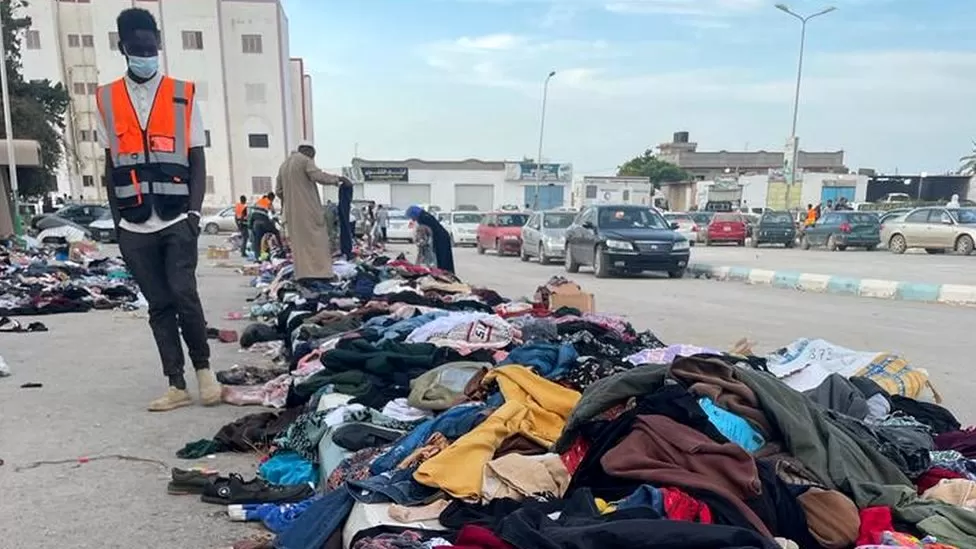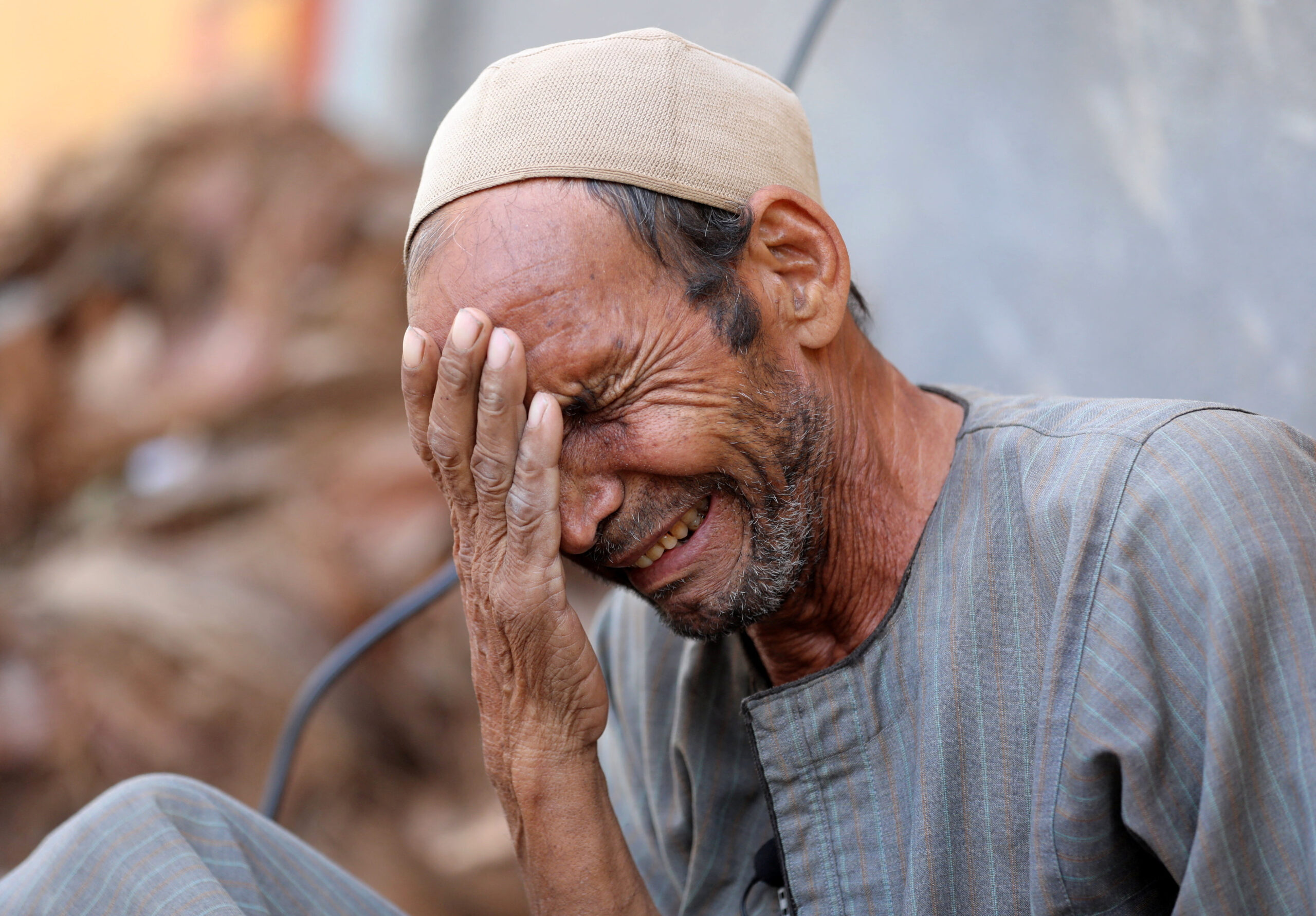A doctor in a mask bends over a black bag. He carefully checks the person’s age, gender, and height first.
The man’s body is badly decayed from being in the water. In a hospital parking lot in Derna, Libya, they’re carefully examining and recording details about him. This is an important but very sad task. He spent a week in the sea, and his body washed up today. Skilled hands carefully search for any marks that might help identify him, and they also take a DNA sample, just in case there are family members who are still alive and can claim him.
Over 10,000 people are officially listed as missing, according to the UN’s Office for the Co-Ordination of Humanitarian Affairs. The Red Crescent has its own count.
The UN reports around 11,300 confirmed deaths, but the final number is uncertain. What’s clear is the enormity of this disaster.

Mohammed Miftah believes his family is among the victims. When he went to his sister’s home after the floods, it was gone. He hasn’t heard from them since. He shows me a video he took as the water rushed in, filling his house.
A car is swept in and blocks the way.
“I saw cars coming down, and I ran out,” he recalls. “I thought it was the end, that I would die. We saw our neighbors with flashlights. In a few moments, the lights went out, and they were gone. That was the hardest part.
The Health Minister of the Eastern Government in Libya shared that four Greek rescue workers lost their lives in a road accident on their way to Derna. Another fifteen were hurt. They were heading to join teams from France and Italy already working there. Kuwait and Saudi Arabia have also sent in large amounts of extra resources.
The next important task is to ensure that the aid is used correctly and equally.
Abdullah Bathily, who leads the UN’s International Support Mission in Libya, explained to BBC Arabic that the country must establish a clear system for handling all the international assistance it receives.
This is because of the difficulties in coordinating between the internationally recognized government in Tripoli and the government in eastern Libya, which isn’t internationally recognized.
In the heart of Derna, amidst the dirt and wreckage that have covered the city, there are signs of hope.
On a street corner, heaps of bright clothes are spread out.

Across the street, a long line forms as fuel is distributed to survivors.
With continuous donations pouring in, a man arrives and leaves a box of cozy scarves in front of an elderly woman.
He gently kisses her head, and she smiles while selecting one.
In this dire crisis, fellow Libyans are extending a helping hand to one another.
NEWS SOURCE: BBC
FEATURED IMAGE CREDIT: REUTERS

